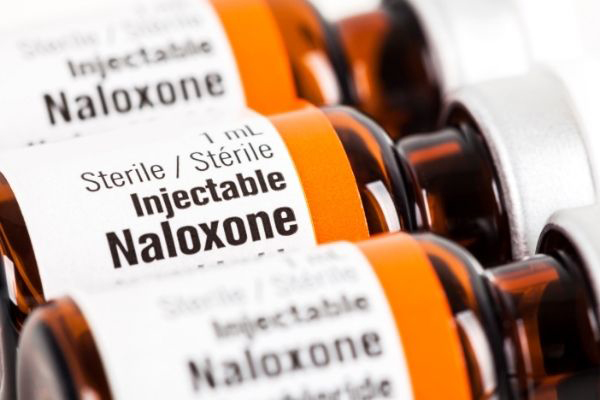Naloxone is very often used in emergencies to prevent an opioid overdose that can be life-threatening. Naloxone is an opioid antagonist meant to be used to reverse the effect of an opioid-related drug overdose. It will only work if the person has opioids in their system. It will have no effect if it is a kind of drug other than opioids, such as benzodiazepines, stimulants, amphetamines, or cocaine. It is, however, effective if a person has overdosed on substances like heroin, fentanyl, hydrocodone, morphine, oxycodone, and any other opioid drug or medication. Naloxone works to reverse an opioid overdose by blocking the opioid receptors in the brain and body. It acts fast and for a short period. By blocking the drugs from the opioid receptors, reverses an overdose and allows the person to be able to breathe again.
What Are Opioids?
Opioids are a type of drug that includes illegal drugs like heroin, synthetic drugs like fentanyl, and even prescription pain relievers like hydrocodone, oxycodone, morphine, and many more. They are found and naturally derived from the opium poppy plant and work on the brain to relieve pain. Opioids will block pain signals between the brain and the body. They can also cause a person to feel high, relaxed, numb, and happy. This is why opioids are so highly abused and addictive.
Will it Keep Someone from Seeking Treatment?
There is not much evidence to support the idea that the increased availability of naloxone will prevent opioid drug users from seeking life-saving treatment of opioid addiction. Naloxone is only a short-acting medication that is used to reverse the effects of an overdose. Naloxone can be a life-saving tool for those who are at risk of dying from an opioid overdose. In 2019 alone, almost 50,000 people in the United States, unfortunately, die from an opioid overdose death. If even a fraction of those 50,000 people had received a life-saving dose of Naloxone, they might have had a chance of seeking out treatment rather than dying.
How Naloxone Can Help Addiction Treatment
Naloxone can even be helpful for specific patients receiving medically assisted treatment for an opioid use disorder. For example, a good contender for naloxone treatment includes things like:
- Those who take very high doses of opioids for long periods for chronic pain management.
- Those who are getting opioid medication regimens.
- Those who have recently been discharged after having an overdose on opioids.
- Those in a medical detox program.
Recognizing an Opioid Overdose and Knowing How to Help
An opioid overdose can seem scary when watching it happen. It can occur anywhere from 20 minutes to 2 hours after the substance has been taken. The signs of an opioid overdose include a clammy face that has lost its color, blue lips, and fingertips, unresponsiveness, slowed or stopped breathing gurgling and snoring sounds, slowed or stopped heartbeat, becoming unconscious, or a coma.
Find Better Days and Overcome Opioid Misuse at Evoke Wellness at Cohasset!
If you think that someone you come across might be overdosing on opioids, you should first call 911 and check to see if they are responsive. Suppose they are not trying rubbing their chest firmly with your knuckles to wake them up. Once you have called 911, you should administer naloxone to help them breathe and make them more alert. Make sure you stay with them until paramedics have arrived. Once help arrives, ensure that you let paramedics know of what you have done since calling 911 so they can take over from there. The best way to help someone who has an addiction to opioids is to help them get into addiction treatment, we offer a variety of programs here at Evoke Wellness MA, one that will work for anyone. We are available to answer any question you have and give you more info on the treatment process and more.




